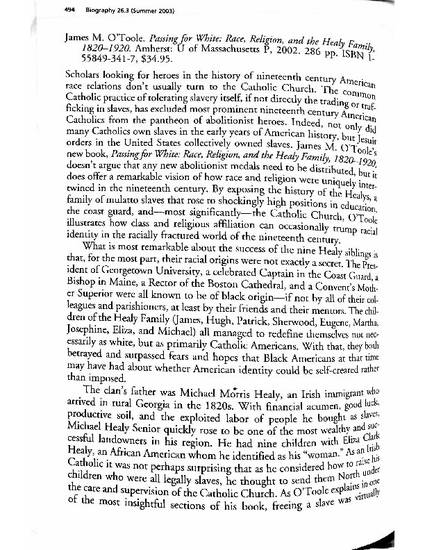
Scholars looking for heroes in the history of nineteenth century American race relations don't usually turn to the Catholic Church. The common Catholic practice of tolerating slavery itself, if not directly the trading or trafficking in slaves, has excluded most prominent nineteenth century American Catholics from the pantheon of abolitionist heroes. Indeed, not only did many Catholics own slaves in the early years of American history, but Jesuit orders in the United States collectively owned slaves. James M. O'Toole's new book, Passing for White: Race, Religion, and the Healy Family, 1820-1920,doesn't argue that any new abolitionist medals need to be distributed, but it does offer a remarkable vision of how race and religion were uniquely intertwined in the nineteenth century. By exposing the history of the Healys, a family of mulatto slaves that rose to shockingly high positions in education, the coast guard, and—most significantly—the Catholic Church, O'Toole illustrates how class and religious affiliation can occasionally trump racial identity in the racially fractured world of the nineteenth century.

The published version of this article can be found here: http://muse.jhu.edu/article/48118